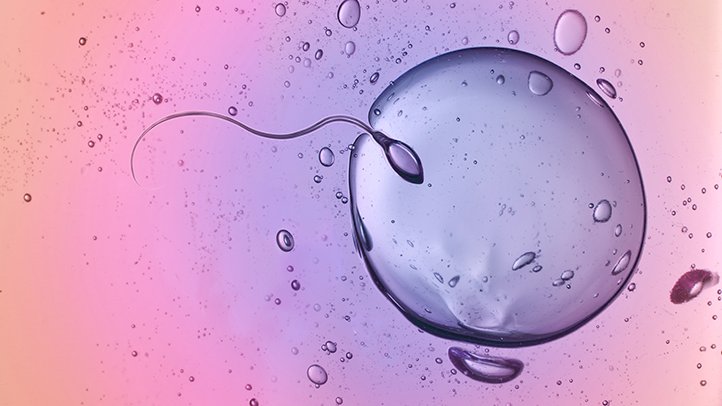Unlocking Fertility: The Role of NAD in Reproductive Health
In the complex tapestry of life, there's a tiny molecule quietly playing a pivotal role in our cells' metabolic dance. Meet NAD, short for Nicotinamide Adenine Dinucleotide. This coenzyme, present in all living cells, is like the conductor of an orchestra, orchestrating a diverse array of metabolic processes crucial for our well-being.
NAD is not just a bystander; it's an active participant in numerous metabolic reactions within our cells. From DNA repair to cell signalling, from energy transfer to maintaining genomic integrity, NAD wears many hats. As we age, however, our NAD levels naturally decline, leading to various age-related conditions, including reproductive aging.
Implications for Fertility:
For women, reproductive aging marks a significant decline in both the quantity and quality of follicles and oocytes. This decline isn't just a number; it's associated with increased infertility rates, miscarriages, embryo lethality, and birth defects. The reasons behind this are multifaceted, involving reduced mitochondrial bioenergetics, increased oxidative stress, and disturbances in meiotic chromosome behavior.
What are the different types of Functinal Mushrooms?
Antiviral & Antimicrobial Properties - Maitake and shiitake, are believed to have antiviral and antimicrobial properties. Research has suggested potential benefits in fighting infections, though more studies are needed to confirm these effects.
Immune Support - Some functional mushrooms, such as reishi, chaga, and maitake, are believed to modulate/regulate the immune system. They may enhance immune function in cases of weakened immunity or help prevent excessive immune responses, such as inflammation.
Neuroprotective Effects - Lion's mane has been studied for its potential neuroprotective effects and enhanced cognitive support. It’s thought that the compounds in this particular mushroom may support nerve growth, neuroplasticity (ability of neural networks in the brain to change through growth and reorganise), cognitive function and more. There needs to be more human studies but the studies that have been conducted are promising. One double blind placebo study in Japan found that consumption of Lion's mane for 4 weeks significantly increased cognitive function scores compared with the placebo.
Anti-Inflammatory Effect - Certain mushrooms, including reishi and cordyceps, are associated with anti-inflammatory properties. Chronic inflammation is linked to various health issues, so substances that can help modulate inflammation are promising.
Comparison of NMN+ supplemented mice vs non-supplement aged mice. Improvements in oocyte structure and meiosis.
But here's the ray of hope: research suggests that supplementing with NAD precursors like Nicotinamide Riboside (NR) and Nicotinamide Mononucleotide (NMN) could hold the key to rejuvenating reproductive health. Studies in mice have shown that NMN supplementation can replenish NAD levels in aging oocytes, improve mitochondrial function, and enhance oocyte maturation, fertilisation rates, and embryonic development.
Real-world Implications:
The potential of NAD supplementation isn't confined to the lab; it extends to real-world scenarios. Studies in pigs have indicated that NMN supplementation can safeguard oocyte quality from the detrimental effects of environmental pollutants, offering hope for both animal and human fertility.
Beyond Animal Studies:
While animal studies offer promising insights, it's essential to tread cautiously. Human physiology is complex, and results may not always translate directly. Nonetheless, the clinical efficacy of NAD and its precursors in slowing ovarian ageing suggests a potential avenue for fertility treatment.
Lifestyle Interventions:
But NAD supplementation isn't the only way to support reproductive health. Lifestyle interventions like intermittent fasting, caloric restriction, and exercise can also enhance NAD levels in the body, thereby potentially improving fertility outcomes. These simple yet powerful interventions underscore the interconnectedness of lifestyle and reproductive health.
The Future of Fertility:
As we delve deeper into the intricate workings of NAD and its implications for fertility, one thing becomes clear: it's a vital piece of the puzzle. From unraveling the mysteries of reproductive aging to exploring innovative treatment modalities, NAD holds promise as a beacon of hope for those navigating the journey of fertility.
In a world where fertility treatments often come with risks and uncertainties, NAD supplementation presents a non-invasive, naturopathic approach to restoring fertility during reproductive aging. It's not a magic bullet, but rather a piece of a larger puzzle—a puzzle that holds the key to unlocking new possibilities in reproductive health.
As we continue to unravel the mysteries of NAD and its role in fertility, one thing is certain: the future of fertility looks brighter with every discovery we make.




